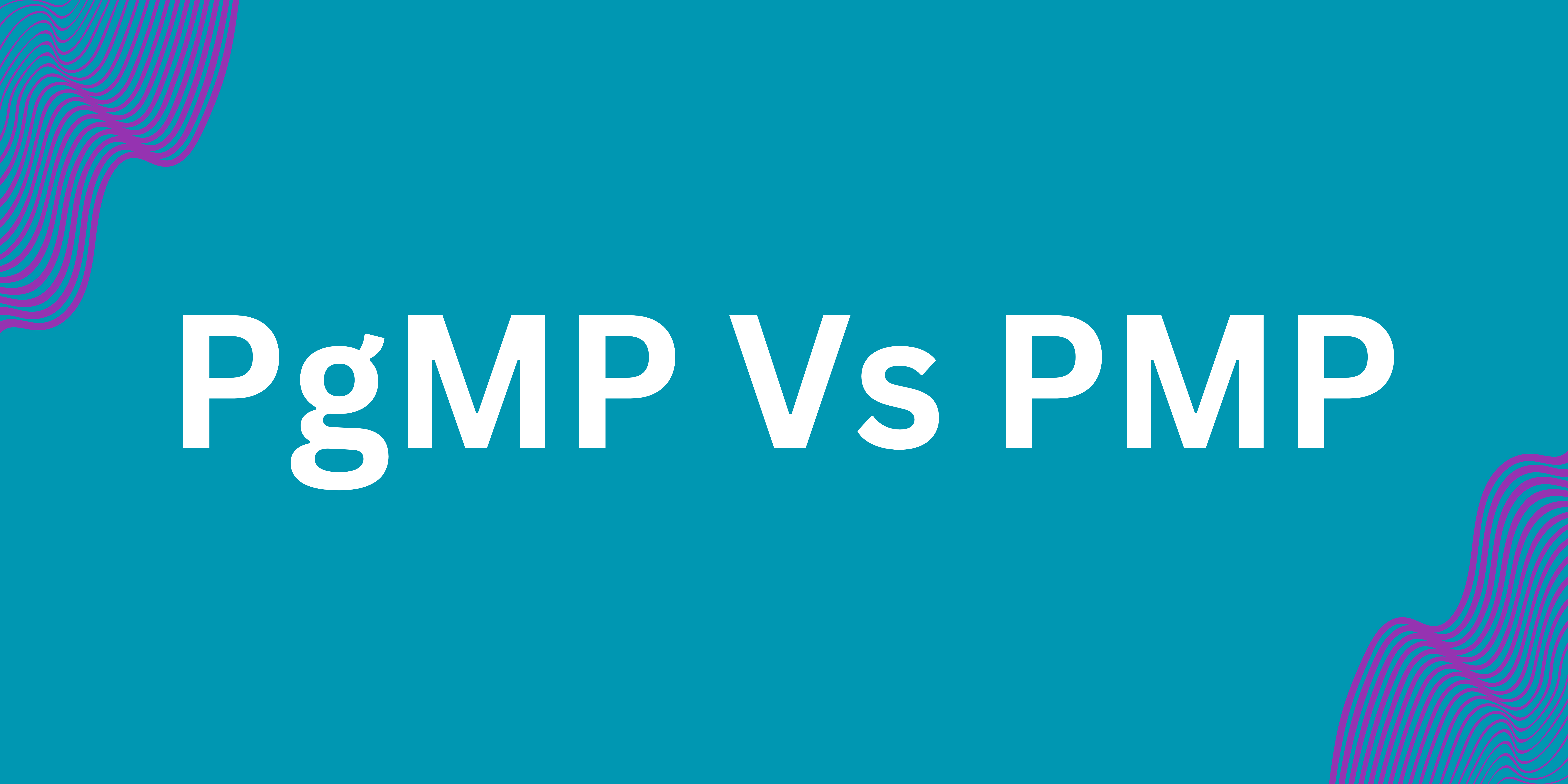
Limited Time Offer – Enjoy 30% OFF on Expert-Led Courses!


Limited Time Offer – Enjoy 30% OFF on Expert-Led Courses!

10 JUNE 2022
By AxiGlobe

If you're in project management and looking to advance your career, chances are you've come across the PMP (Project Management Professional) and PgMP (Program Management Professional) certifications offered by PMI (Project Management Institute). Both are globally recognized credentials that can enhance your skills, knowledge, and marketability. However, they serve different purposes and cater to distinct career paths within the field of project management.
In this blog, we’ll compare PgMP and PMP, explore their differences, and help you determine which one might be best suited for your career goals.
PMP is widely known as the gold standard in project management certification. It’s designed for project managers who want to solidify their ability to lead and direct individual projects. The PMP is ideal for professionals managing single projects and who are responsible for delivering project-specific goals within constraints such as time, scope, and budget.
PgMP, on the other hand, is an advanced certification designed for program managers. A program is a collection of related projects that are managed in a coordinated way to achieve benefits that are greater than managing them individually. PgMP is ideal for professionals who oversee multiple projects, aligning them with strategic goals, and focusing on business value and overall outcomes.
PMP: Project-Focused Professionals
The PMP is suitable if you:
PgMP: Program-Focused Professionals
The PgMP is ideal if you:
In short, if your work involves managing a single project end-to-end, PMP is probably the right choice. If you’re managing multiple interrelated projects that collectively support a broader organizational vision, PgMP might be a better fit.
Both certifications have distinct eligibility requirements based on experience and education.
PMP Requirements:
PgMP Requirements:
Overall, PgMP is intended for more seasoned professionals with experience managing multiple projects on a larger scale.
Both exams test project management knowledge, but their focuses are different:
PMP Exam:
PgMP Exam:
The PgMP exam is generally considered more challenging due to its emphasis on higher-level strategic thinking, while the PMP exam is rigorous but primarily focuses on project-specific management practices.
Earning a PMP or PgMP certification can increase your career prospects and salary.
PMP Career Path and Salary:
PgMP Career Path and Salary:
The PgMP certification tends to open doors to more senior-level roles and higher salaries than the PMP, as it signifies expertise in aligning multiple projects with strategic goals.
Both certifications provide significant advantages, but they cater to different professional levels and responsibilities.
Benefits of PMP:
Benefits of PgMP:
For professionals who already hold a PMP certification, pursuing a PgMP can be a logical next step to advance into program management roles.
Both the PMP and PgMP certifications offer significant value, but they cater to different career paths and levels of responsibility. If you’re interested in leading individual projects, the PMP certification will provide you with the credentials and skills needed to succeed. However, if you aspire to manage multiple related projects that drive strategic goals, the PgMP certification can open doors to higher-level roles and leadership opportunities.
Ultimately, the decision between PMP and PgMP should be based on your career experience, current responsibilities, and future aspirations. Both certifications are prestigious in their own right and can enhance your professional reputation and career growth in the project management field.
Oh! We recently winded up one batch, but no worries. We have a few more in the coming weeks.
Just opt-in for the updates about dates, prices, and curriculum with your preferences!
We keep you posted about the course.
Level Up Your Career with
30% OFF!
Get certified, gain global recognition, and fast-track your success with expert guidance.

Fill the Required Details
Exclusive Offer
Share your details to get upto 30% off
©️2020 - 2026 AxiGlobe All Rights Reserved. The certification names are the trademarks of the respective authorised bodies
Training Partner -
 Australia
Australia
Disclaimer :
Profession Scrum Master (PSM-I®, PSM-II®, PSM-III®), Profession Scrum Product Owner (PSPO-I®, PSPO-II®, PSPO-III®), Profession Scrum Developer (PSD-I®), Scaled Professional Scrum(SPS®),Professional Scrum With Kanban(PSK-I®) , Prove your knowledge of Professional Agile Leadership(PAL-I®), Prove your knowledge of Evidence-Based Management™ (PAL-EBM®), Prove Your Scrum with User Experience Knowledge
(PSU-I®) and Professional Scrum Trainer(PST®) are registered trademarks of Scrum.org®. AxiGlobe INC is a Professional Training Network member of Scrum.org®.
Certified Business Analysis Professional (CBAP®), Certification of Capability in Business Analysis(CCBA®), Entry Certificate in Business Analysis(ECBA®), Agile Analysis Certification(AAC®), Certification in Business Data Analytics(CBDA®), Certificate in Cybersecurity Analysis(CCA®), Certificate in Product Ownership Analysis(CPOA®) are registered trademarks of International Institute of Business Analysis(IIBA®). AxiGlobe INC is an Premier Level Endorsed Education Provider of IIBA®.
SAFe Agilist Certification (SA®), SAFe Program Consultant Certification (SPC®),SAFe Program Consultant Trainer Certification (SPCT®),SAFe Practitioner Certification(SP®),SAFe Release Train Engineer Certification (RTE®),SAFe Scrum Master Certification (SSM®),SAFe Advanced Scrum Master Certification (SASM®),SAFe DevOps Practitioner Certification(SDP®),Agile Product Manager Certification (APM®),Lean Portfolio Manager Certification (LPM®),Product Owner / Product Manager Certification (POPM®),SAFe Architect Certification (ARCH®),Agile Software Engineer Certification (ASE®) and SAFe Government Practitioner Certification (SGP®), Scaled Agile Framework® and SAFe® are registered trademarks of Scaled Agile, Inc.®. AxiGlobe INC is a Silver Partner of Scaled Agile, Inc®.
DevOps Foundation®, DevOps Leader®, SRE Foundation℠, SRE Practitioner℠, DevSecOps Foundation℠, Continuous Testing Foundation℠, Certified Agile Service Manager®, Continuous Delivery Ecosystem Foundation℠ and Value Stream Management Foundation® are registered trademarks of DevOps Institute. AxiGlobe INC is a Registered Education Partner (REP) of the DevOps Institute (DOI) ®. Read more...
